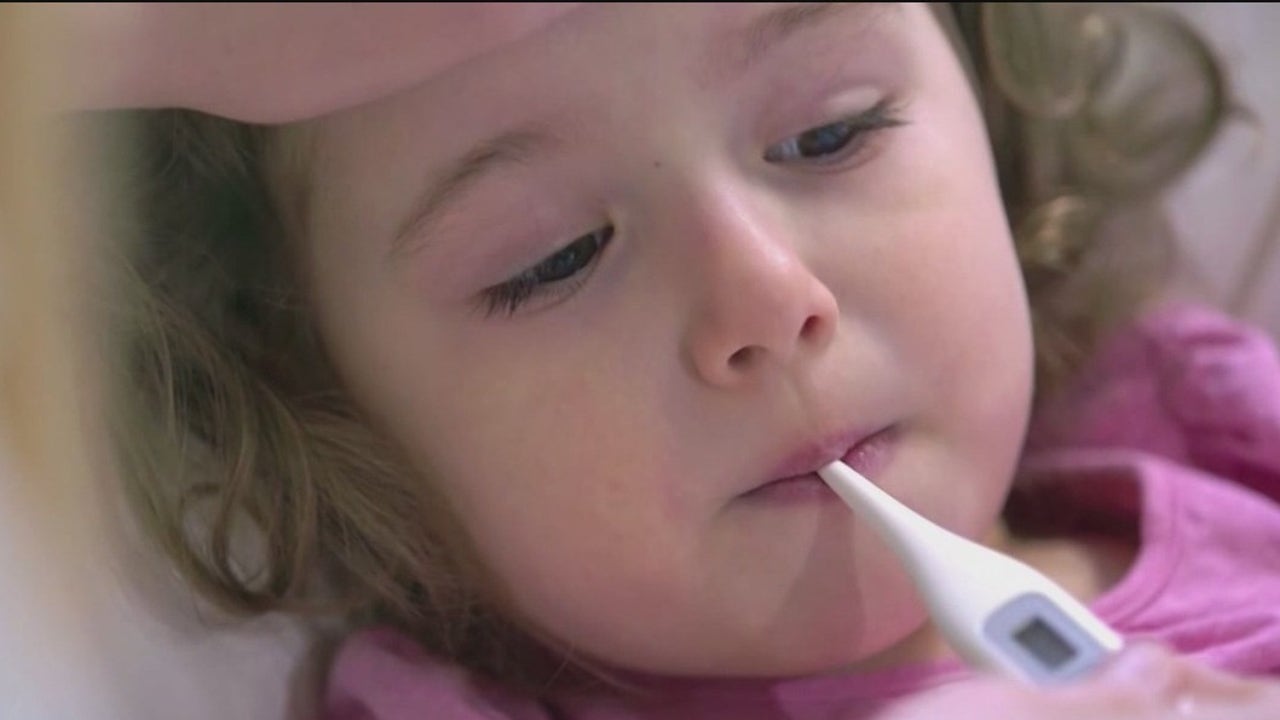
COVID or a cold - How to interpret your kids' symptoms
As children return to classrooms this month, pediatricians said the symptoms of a common cold, allergies, flu or COVID-19 often overlap, making testing for the coronavirus important for parents to consider if their child gets sick.
TAMPA, Fla. - As children return to classrooms this month, pediatricians said the symptoms of a common cold, allergies, flu or COVID-19 often overlap, making testing for the coronavirus important for parents to consider if their child gets sick.
Doctors said more children are getting infected with COVID-19, and they said those symptoms often look like other common illnesses.
"Even for medical personnel, it's difficult to tell without a test," said Dr. Allison Messina, the chief of infectious diseases at Johns Hopkins All Children's Hospital in St. Pete.
Doctors recommend calling a pediatrician if they get sick this fall to see if they need a COVID test.
"There's really no reliable differences, I'll be honest. I mean, especially in the beginning stages of getting COVID in those first few days, symptoms can very much overlap with a common cold," said Messina. "I would tell parents that if your child has any respiratory symptoms, any fever, even any like abdominal pain and or diarrhea, just give your pediatrician a call and talk it over with your child's pediatrician and see if they think that that child should be tested."
A major thing to watch out for is a fever, especially if it’s over 100.4 degrees.
RELATED: 9 percent of Hillsborough students have opted out of wearing masks
Hillsborough students allowed to opt-out of masks
Hillsborough County Superintendent Addison Davis explained Monday why his district’s mask policy changed three days before students return to school.
"In young children sometimes that really is the only symptom. If they're lucky and get mild disease, if they get sick, it may just look like a cold. So that's why I think it's very important to get that COVID test," said Messina.
Doctors said parents should also watch for other symptoms, like loss of taste or smell or a lot of coughing. If the child does not have a pediatrician to schedule a test, doctors say parents can turn to local county health departments to find a place.
University of Florida pediatrician Dr. Sonja Rasmussen said COVID is a risk more children face now.
MORE: With school starting this week, Pinellas and Manatee leaders decide against mask mandates
ICU patient recalls near-death experience with COVID-19
A Bay Area man says he was the picture of health and he never thought he would get COVID-19. But after an extended stay in the ICU, he has a positive prognosis and a unique way to help others.
"Kids tend to be not having as severe complications as adults, although some kids have been severely affected. So I know that we've heard again and again kids are more mildly affected. That's true in general. But some kids, thousands of kids have had to be hospitalized in the United States and over 400 kids have died," said Rasmussen. "I don't want to scare parents, but I don't want them to underestimate COVID. It's something that is important to try to prevent, if at all possible, by wearing a mask, by trying to keep that social distance, that physical distance."
Doctors said the vaccine is the best solution to help prevent getting sick or passing it on.
"We want to get our kids’ lives back to normal. Kids 12 [years old] and above can get the vaccine, but under 12 still can't get the vaccine. So the way to protect them is for all the rest of us to get our vaccine," said Rasmussen.
RELATED: New COVID-19 testing site opens in St. Pete to meet demand
Dr. Messina and Dr. Rasmussen said they recommend children younger than 12 wear masks in school.
"I also think it's very important to make sure that those children are vaccinated for everything else that they can be vaccinated for, including flu, because we don't know where we're going to be with flu this year," said Messina.
If a child gets sick and their parent is not sure about their symptoms, experts say it's best to call a doctor and urge parents not to send their child to school sick.
"between" - Google News
August 10, 2021 at 10:07AM
https://ift.tt/3s3MTk7
How to tell the difference between common childhood illnesses and COVID-19 - FOX 13 Tampa Bay
"between" - Google News
https://ift.tt/2WkNqP8
https://ift.tt/2WkjZfX
Bagikan Berita Ini















0 Response to "How to tell the difference between common childhood illnesses and COVID-19 - FOX 13 Tampa Bay"
Post a Comment